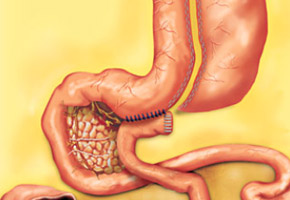Study evaluates the cardiovascular effect of bariatric surgery in diabetic patients
Incor researchers are looking for male volunteers who are overweight or obese and between the ages of 18 and 65
Study evaluates the cardiovascular effect of bariatric surgery in diabetic patients
Incor researchers are looking for male volunteers who are overweight or obese and between the ages of 18 and 65

Incor researchers are looking for male volunteers who are overweight or obese and between the ages of 18 and 65
By Karina Toledo
Agência FAPESP – Researchers from the Heart Institute (Incor), a hospital that is part of the Universidade de São Paulo Medical School (FMUSP), are seeking volunteers for a study that intends to evaluate the effect of bariatric surgery in controlling factors such as cardiovascular risk in overweight or slightly obese diabetics.
The candidates must have a body mass index (BMI) between 28 and 35. Currently, according to the Federal Council of Medicine, the procedure can only be performed on people with a BMI above 40 or above 35 for patients with diseases associated with obesity such as diabetes and hypertension.
“Preference was given to people with a BMI below 35 in the project because, according to some studies, diabetes in these patients is less linked to obesity and more related to an unfavorable metabolic profile,” explained Fernanda Reis Azevedo, whose
doctoral thesis was funded in part through a FAPESP fellowship.
Recent investigations have also shown that diabetics who have had the surgery present improved glycemia even before significant weight loss, adds the researcher. “Our objective is to understand which metabolic changes are involved and gauge the impact on reducing cardiovascular risk,” she adds. The study is linked to a
Thematic Project coordinated by FMUSP professor Bruno Caramelli.
According to Azevedo, poorly controlled diabetes contributes to increase cardiovascular risk in several ways. The constant elevation of glycemia damages the walls of arteries and favors the development of atherosclerosis. The disease also has some impact on renal function, which can lead to an increase in arterial pressure.
“Some patients cannot control glycemia even with insulin, diet and medicine. We are seeking precisely these patients who have uncontrolled diabetes,” she comments.
Candidates must also be males between the ages of 18 and 65 and have an abdominal circumference over 102 centimeters. “We left out women because hormonal changes related to the menstrual cycle could interfere with the results,” explains Azevedo.
Furthermore, the volunteers must have been diagnosed with diabetes for more than 2 years and less than 10 years. They cannot be drug or alcohol dependent or smokers and cannot have any other serious chronic illnesses related to obesity such as cancer, AIDS or autoimmune diseases.
Calculated risk
The goal is to select 20 candidates. An additional 10 healthy volunteers will take part in the study to serve as control subjects for the metabolic parameters. “We will evaluate the release of hormones produced in the gastrointestinal tract, such as leptin, ghrelin and GLP1, which is a potent inducer of satiety and also increases sensitivity to insulin,” commented Azevedo.
The volunteers will undergo an evaluation by endocrinologists to assist the clinical trial. After six weeks, 10 people will be randomly selected (by lottery) to have the surgery. The other 10 volunteers will continue solely with clinical treatment.
Before the surgery, all will undergo a battery of exams that include a blood test, echocardiogram, ultrasonography and tomography. “We will evaluate glycemia, cholesterol and the presence of atherosclerotic plaques and determine if there is an accumulation of fat in the liver or around the heart,” said Azevedo.
The second battery of exams will be conducted three months after the operation and the third, two years after. “With all the data in hand, we can calculate the cardiovascular risk and determine which group shows the greatest decrease,” she explained.








